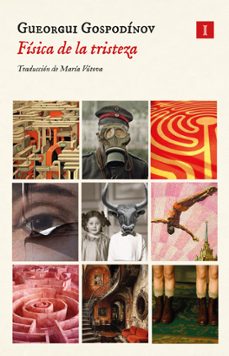📗 Libro en inglés THE OXFORD MURDERS
PENGUIN- 9780143037965
Sinopsis de THE OXFORD MURDERS
Math and murder mingle in this intriguingly cerebral mystery. When an Argentine math student at Oxford discovers the smothered body of his landlady, conventional wisdom points to a family member with the most prosaic of motives. But then renowned logician Arthur Seldom, author of a book on the mathematics of serial killers, tells of a strange note left in his mailbox indicating the murder is the first of a series linked by a mysterious pattern. More bodies pile up, apparently of natural causes, but each paired with a message bearing a new arcane symbol. Arthur and his student ponder whether the deaths are innocent or the subtle, imperceptible homicides of a madman seeking to match wits with the great logician, and they rack their brains to decipher a pattern behind the signs before another corpse turns up. Martinez, a novelist and math Ph.D., writes with a restrained, elegant style sprinkled with brief disquisitions on Gödel''s theorem, Heisenberg''s uncertainty principle and Wittgenstein''s paradox, which demonstrates the impossibility of establishing an unambiguous rule. None of that helps very much in solving the crimes, but it makes an intriguing context for the author''s exploration of a fundamental mystery theme;how we impose meaningful patterns on the confusing evidence of reality and are in turn misled and blinded by those patterns. The result is a stylish, intellectually meaty whodunit.
Ficha técnica
Editorial: Penguin
ISBN: 9780143037965
Idioma: Inglés
Número de páginas: 480
Tiempo de lectura:
9h 56m
Encuadernación: Tapa blanda
Fecha de lanzamiento: 29/09/2006
Año de edición: 2006
Plaza de edición: London
Especificaciones del producto
Escrito por Guillermo Martínez

Guillermo Martínez (Bahía Blanca, Argentina, 1962) se doctoró en Ciencias Matemáticas por la Universidad de Buenos Aires. A su primera novela, Acerca de Roderer, traducida a varios idiomas, la siguieron La mujer del maestro y el ensayo Borges y la matemática. En 2003 publicó Crímenes imperceptibles, novela traducida a cuarenta idiomas y llevada al cine por Álex de la Iglesia con el título Los crímenes de Oxford, con el que fue editada también en 2004 por Destino. En 2007 publicó La muerte lenta de Luciana B., adaptada como película por Netflix en 2022. En 2011 publicó Yo también tuve una novia bisexual. En 2015 ganó el I Premio Hispanoamericano de Cuento Gabriel García Márquez con Una felicidad repulsiva y publicó los libros de ensayo La fórmula de la inmortalidad; Gödel para todos, en colaboración con Gustavo Piñeiro, y La razón literaria, y en 2022, la novela La última vez. En 2019 obtuvo el Premio Nadal por Los crímenes de Alicia.
Descubre más sobre Guillermo Martínez Recibe novedades de Guillermo Martínez directamente en tu email
Opiniones sobre THE OXFORD MURDERS
¡Sólo por opinar entras en el sorteo mensual de tres tarjetas regalo valoradas en 20€*!


































